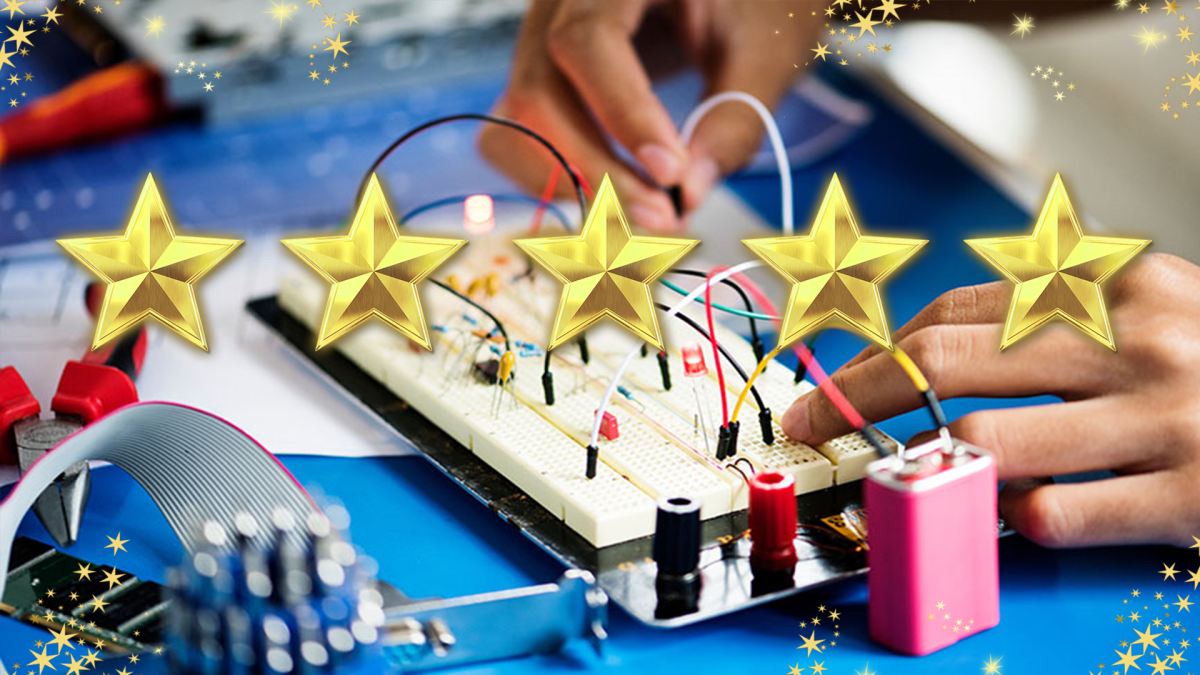Grades:
6th Grade, 7th Grade, 8th Grade
This is an 8-lesson unit that is designed to be used together to learn about the health and diversity of your local watershed by placing leaf packs into a water source (natural or man-made ponds
Grades:
6th Grade, 7th Grade, 8th Grade
This is a two-part lesson using pull back cars. Students will change the mass of their pull back cars to determine if the mass affects the distance they travel or their speed. This engaging lesson
Grades:
6th Grade, 7th Grade, 8th Grade
This hands-on science lesson will help students get a more accurate view of the solar system by making a scale model with play dough, balloons, rulers, and tape!
Grades:
6th Grade, 7th Grade, 8th Grade
This is an 8-lesson unit that is designed to be used together to learn about the health and diversity of your local watershed by placing leaf packs into a water source (natural or man-made ponds
Grades:
5th Grade
In this lesson, students comprehend basic physics concepts that are applicable to constructing a device that protects an egg from breaking when dropped. Team building and self-reflection are key
Grades:
4th Grade, 5th Grade, 6th Grade, 7th Grade, 8th Grade
In this engaging lesson, students use LEGOs to create a working seismograph. Included are all the materials you will need, video links, a pre and post assessment and rubric. Students will enjoy this
Grades:
5th Grade
Students will use the engineering design process to design, build, and test three different paper airplane designs. The goal will be to create one that can fly the fastest, one that can fly the
Grades:
6th Grade, 7th Grade, 8th Grade
This is an 8-lesson unit that is designed to be used together to learn about the health and diversity of your local watershed by placing leaf packs into a water source (natural or man-made ponds
Grades:
5th Grade, 6th Grade, 7th Grade, 8th Grade
In this engaging lesson students are introduced to the key computational concept of variables using Edison robots and the Scratch-based programming language EdScratch4. Variables, which can be created
Featured
My Very Own Game Controller
Grades:
4th Grade, 5th Grade, 6th Grade
In this engaging lesson, students will design a working game controller using cardboard, conductive materials, and a Makey Makey. The product will coincide with students' prior knowledge of closed
Grades:
5th Grade
This lesson focuses on kinetic and potential energy and features a rollback can. The can when complete can be rolled away from the student and then returns back to where it started. The purpose is to
Grades:
5th Grade
In this creative lesson, students will create a simple machine to retrieve objects through a makeshift storm drain. There is a potential literacy integration and a focus on the engineering design
Featured
Edison Robot Challenges
Grades:
5th Grade, 6th Grade, 7th Grade, 8th Grade
In this hands-on lesson students review the Edison robot and coding in Edscratch. They will then work together to solve math problems and then code the Edison robot to match their solution to the math
Grades:
5th Grade
In this STEM lesson, 5th grade students will apply what they have learned about the affect gravity and friction have on an object’s mobility by engineering simple machines to change the ending of the
Grades:
6th Grade, 7th Grade, 8th Grade
In this hands-on lesson, students will consider what they think about several different closed systems. Then students will design and carry out investigations of living things to inform their closed
Grades:
5th Grade, 6th Grade
This is an introductory lesson designed for a robotics after-school session involving materials and equipment from VEX robotics and coding. Students explore robotics, discuss the tasks robots can
Grades:
6th Grade, 7th Grade, 8th Grade
This is an 8-lesson unit that is designed to be used together to learn about the health and diversity of your local watershed by placing leaf packs into a water source (natural or man-made ponds
Grades:
3rd Grade, 4th Grade, 5th Grade
Students will be learning and practicing the concepts of reflection and refraction through this engaging STEM activity.
Grades:
6th Grade, 7th Grade, 8th Grade
In this meaningful lesson, students use creativity, imagination, and engineering skills to create a water conservation model that can be scaled up and used in a garden. Students are encouraged to
Grades:
6th Grade, 7th Grade, 8th Grade
This is an 8-lesson unit that is designed to be used together to learn about the health and diversity of your local watershed by placing leaf packs into a water source (natural or man-made ponds
Grades:
6th Grade, 7th Grade, 8th Grade
This is an 8-lesson unit that is designed to be used together to learn about the health and diversity of your local watershed by placing leaf packs into a water source (natural or man-made ponds
Featured Lesson Plans
Check out these notable lesson plans.

Grades:
9th Grade, 10th Grade, 11th Grade, 12th Grade
This is a great opportunity to show students that coding can be a lot of fun, and it doesn’t have to be scary. Many high school students with little to no prior coding experience often automatically

Featured
A Shocking Dystopia: STEM Adventures in The City of Ember Part 4 of 4: Where the River Goes
Grades:
4th Grade
This lesson is PART 4 of a four-lesson unit, which focuses on futures thinking, the phenomenon of electricity, closed-system agriculture, and water as a renewable energy resource. “The City of Ember”

Featured
A Shocking Dystopia: STEM Adventures in The City of Ember Part 3 of 4: A Problem in the Greenhouse
Grades:
4th Grade
This lesson is PART 3 of a four-lesson unit, which focuses on futures thinking, the phenomenon of electricity, closed-system agriculture, and water as a renewable energy resource. “The City of Ember”
